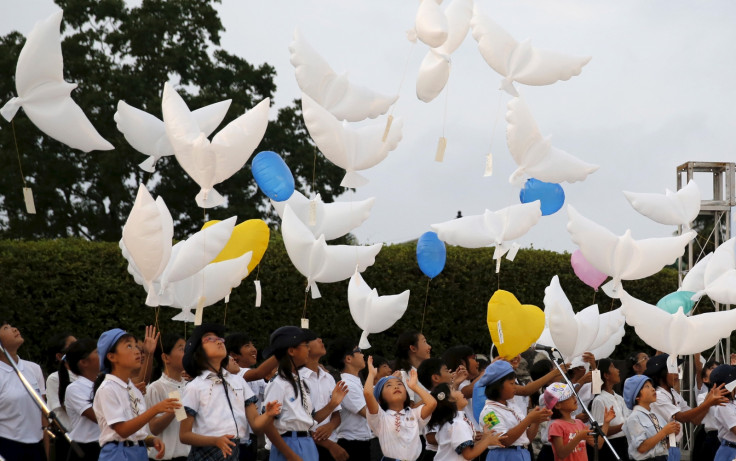Nagasaki marks 70 years of atomic bombing

Japan is commemorating the 70<sup>th anniversary of the atomic bombing in Nagasaki which killed tens of thousands of people in 1945 towards the end of World War II.
Of the 240,000-strong population of the Japanese city, around 74,000 were killed when a US bomber dropped the atomic bomb.
A ceremony has taken place in Nagasaki to mark the anniversary with thousands of people including survivors and victims' families participating. The names of 168,000 victims, who were killed during the bombing and its after-effects, were enshrined with 3,300 names freshly added.
A minute's silence was observed at 11:02 am to mark the timing of the explosion and bells rang in unison.
The attack in Nagasaki came three days after the Hiroshima bombing, which was estimated to have killed about 140,000 people.
The calls for abolishing nuclear weapons were yet again made during the annual ceremony, attended by representatives from a record 75 countries. An 86-year-old Sumiteru Taniguchi described the aftermath of the injuries in graphic detail subsequent to the bombing.
Japan's Prime Minister Shinzo Abe said in his brief remarks, "As we look around the city of Nagasaki that has achieved its present-day restoration, we appreciate once more how precious peace is. I have also renewed my determination for Japan, as the only country to have ever experienced the horror of nuclear devastation in war, to take the lead in the international community's nuclear disarmament efforts, firmly upholding the 'Three Non-Nuclear Principles' as we work towards the realization of a world free of nuclear weapons".
UN Secretary General Ban ki-Moon said in a statement: "Nagasaki must be the last - we cannot allow any future use of nuclear weapons. The humanitarian consequences are too great. No more Nagasakis. No more Hiroshimas."
The anniversary comes at a time when the government embarks on pushing through security bills, which Abe insists are necessary for Japan's defence capabilities, sparking widespread concern among the public that it goes against the war-renouncing constitution.
© Copyright IBTimes 2025. All rights reserved.




















